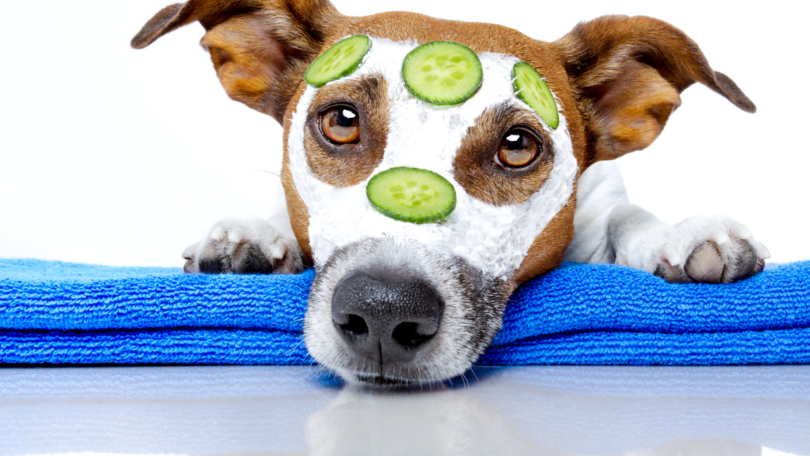As a pet owner, you might have wondered if your furry friend can enjoy pickles. After all, they’re a tasty addition to our meals. But before sharing, it’s important to understand the risks.
Imagine this: your dog eyes a pickle on your plate. You hesitate, unsure if it’s safe. This common scenario sparks questions about our pets’ dietary safety.
Traditionally, pickles are cucumbers soaked in a brine of vinegar, water, and salt. While not toxic in tiny amounts, their high salt content and added ingredients can harm your dog.
Veterinarians advise caution. Even a small amount of pickle can affect your dog due to the sodium levels. It’s crucial to monitor their diet closely.
Understanding what’s safe for your dog is key. This guide explores the risks of feeding pickles to your pet, helping you make informed decisions for their health.
Understanding Pickles and Their Ingredients
When it comes to your pet’s diet, it’s important to understand what goes into the foods they consume. Pickles, while seemingly simple, are more than just cucumbers. They undergo a pickling process that involves brine, vinegar, and various spices, which can significantly alter their nutritional profile.
What’s in a Pickle: Brine, Vinegar, and Spices
A pickle’s primary ingredient is the cucumber, but the pickling process adds a lot of sodium. The brine, a mixture of water, vinegar, and salt, gives pickles their distinctive taste but also contributes to high sodium levels. Additionally, spices like garlic and onions, which are toxic to dogs, are often included, making pickles a less healthy option for your pet.
Cucumber vs. Pickle: Nutritional Differences
Fresh cucumbers are low in calories and rich in water and fiber, making them a safe and healthy snack for dogs. However, once pickled, cucumbers absorb high amounts of sodium and other ingredients that can be harmful. The sodium content in pickles far exceeds the recommended daily intake for dogs, potentially leading to serious health issues.
Understanding these ingredients helps pet owners make informed decisions. While cucumbers are safe, pickles are not recommended due to their high sodium and added toxins. Always opt for fresh cucumbers as a healthier alternative for your dog.
Potential Health Risks for Dogs
Feeding pickles to your dog can pose serious health risks. Even a small amount of pickle can harm your pet due to high sodium levels and toxic additives. Veterinarians strongly advise against sharing pickles with your dog to protect their health.
High Sodium Concerns and Toxic Additives
Pickles are soaked in brine, a mixture of water, vinegar, and salt, making them extremely high in sodium. This sodium can disrupt your dog’s natural electrolyte balance, leading to dehydration and vomiting. Additionally, many pickles contain spices like garlic and onions, which are toxic to dogs and can cause anemia.
Some pickles also contain sugar, which offers no benefit to your dog’s health. Over time, these ingredients can lead to long-term health issues such as heart or kidney problems. Veterinarians warn that repeated exposure to such ingredients can have severe consequences for your pet’s well-being.
Digestive Upset and Long-Term Health Issues
Eating pickles can cause immediate digestive upset in dogs, including diarrhea and vomiting. In severe cases, high sodium intake can lead to salt toxicity, which may result in seizures or even death. Veterinarians recommend immediate consultation if your dog consumes a large amount of pickles or pickle juice.
While pickles are not toxic, the risks associated with their ingredients far outweigh any potential benefit. To keep your dog safe, it’s best to avoid pickles altogether and opt for healthier alternatives like fresh cucumbers.
Can Dogs Have Pickles
Expert veterinarians like Dr. Carly Fox and Dr. Lucas White share insights on the safety of pickles for dogs. While a stray pickle isn’t toxic, the risks tied to high sodium and harmful additives pose a significant problem for your pet’s health.
Expert Veterinary Opinions on Pickle Consumption
Veterinarians caution against including pickles in your dog’s diet due to their high sodium content and toxic ingredients like garlic and onions. These can lead to serious blood issues and health problems, including anemia and electrolyte imbalances.
Even accidental ingestion can cause immediate digestive upset. Prolonged consumption worsens the issue, potentially leading to long-term health complications. The high sodium in pickles far exceeds safe levels for dogs, making them an unsuitable treat.
Consult your veterinarian for tailored advice on your dog’s diet to ensure their well-being and avoid any health risks associated with pickles.
Safe Alternatives and Feeding Guidelines
While pickles aren’t a safe option for your furry friend, there are plenty of healthy alternatives you can offer. Fresh cucumbers and fresh dill are excellent choices that provide nutritional benefits without the risks.
Fresh Cucumbers and Other Nutritious Treats
Fresh cucumbers are a great snack for dogs. They’re low in calories, rich in water, and packed with fiber and vitamins. Plus, they can help keep your dog hydrated. Fresh dill is another safe option—it can freshen your dog’s breath and even offer anti-inflammatory benefits when given in small amounts.
Onions, often found in pickles, are toxic to dogs and should be avoided. Always introduce new treats slowly and consult your veterinarian first. Remember, treats shouldn’t make up more than 10% of your dog’s daily diet.
The answer to whether dogs can have pickles is a clear no. Stick to fresh cucumbers and dill for a safe and healthy choice. Your dog will thank you for keeping their diet balanced and nutritious!
Wrapping Up: Keeping Your Dog Safe
As a responsible pet owner, it’s crucial to prioritize your dog’s health above all else. While pickles may also contain some vitamins, the risks tied to their high sodium content and toxic additives far outweigh any potential benefits. This article has provided clear, expert-backed reasons to keep your dog’s diet pickle-free.
Even though pickles may contain vitamin benefits, the overall risk for your dog is too high. The sodium levels in pickles can lead to serious health issues, including dehydration and vomiting. Additionally, ingredients like garlic and onions can cause anemia in dogs, making pickles an unsuitable choice for your pet.
Always consider your dog’s condition and consult with your veterinarian before introducing any new food. If you’re ever in doubt, it’s best to avoid foods that could harm your pet. Fresh cucumbers and fresh dill are safe alternatives that provide nutritional benefits without the risks associated with pickles.
Remember, safe feeding practices and regular veterinary checkups are key to maintaining your dog’s well-being. By keeping pickles out of your dog’s diet, you’re taking a proactive step toward their health and happiness.
For more information on keeping your dog healthy, visit our guide on why dogs get diarrhea and how to prevent it. Your dog’s health is in your hands, and with the right knowledge, you can make informed decisions to ensure their safety and well-being.
FAQ
Are pickles safe for dogs to eat?
While pickles aren’t toxic to dogs, they can pose health risks due to high sodium content and added ingredients like onion or garlic, which are harmful to dogs. Always consult a veterinarian before sharing human food with your pet.
What happens if a dog eats a pickle?
A small amount of pickle might cause mild digestive upset, like diarrhea, due to the brine and spices. However, regular or excessive consumption can lead to more serious health issues, including high blood sodium levels.
Can dogs benefit from eating pickles?
Pickles offer little nutritional value for dogs. Fresh cucumbers, which are low in calories and high in water content, are a better choice as an occasional treat. Always remove any harmful additives like onions or sugars.
How much sodium is safe for a dog?
Dogs should consume sodium in very limited amounts, typically less than 100 mg per day for small breeds and up to 200 mg for larger dogs. Exceeding this can lead to health issues like vomiting or lethargy.










Leave a Comment